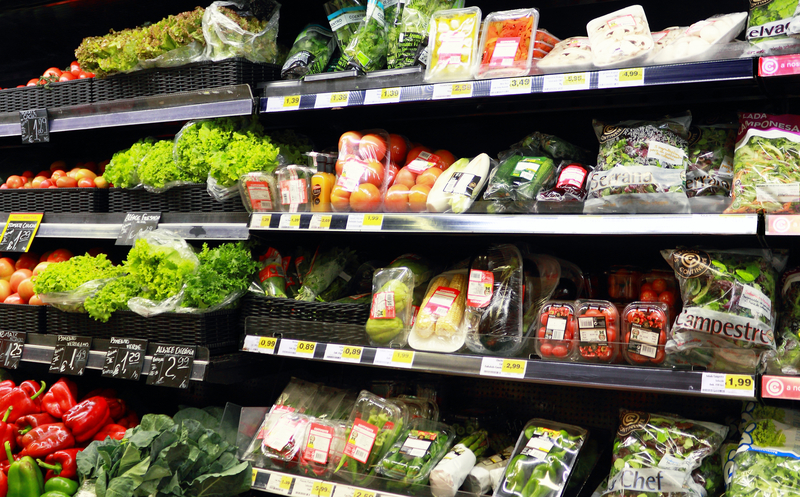Most of the time, our first stop at the grocery store when we're trying to eat healthy is the produce section. It's the quickest and easiest way to get the nutrients we need to either lose weight, feel healthier or feed our bodies' vital organs. You may think that by grabbing a bag of spinach, followed by a head of broccoli and some tomatoes, it will not only give your meal lots of color, but also plenty of vitamins and other essential nutrients.
You feel rewarded for feeding your body that healthy produce, but what if those vegetables weren't holding up their end of the deal? Based on research, it's been discovered that vegetables it today's world are not nearly as nutritious as they were in the middle of the 20th century. You might initially think that's a crazy statement. However, there's plenty of evidence and reasons to support it. The growing awareness and push for organic foods help to mitigate a few of the issues that contribute to a rapidly decreasing nutrition level in vegetables, but there's more to the story.
Take a look at why vegetables were healthier in 1950 than they are today!

This has been common knowledge for a LONG time.
Probably because supermarkets didn’t get their hands on every thing. Bring back the local shops.
We had half the population. I’d love to get all my produce locally, but housing sprawl from the population increase has wiped out local farmlands such that we’ve exceeded the local carrying capacity of the land and must get our produce from elsewhere. To do so means that it must travel…so it cannot be picked today…and picked early, it cannot be as nutritious and sometimes cannot even be the same sub-species. We have 320 million people to feed. 15 million in New England…and we do not have the available land any more to feed 15 million……but Mexico does.
And they were all organic!
Grow your own vegetables problem solved
This is true! With all the new technology to produce more quicker we’ve lost nutrition. With all the sterilization to prevent getting sick, we’ve lost important needed probiotics. All we’ve done is make us less healthy.
Yvonne Page
They are also hybridized to increase shelf life and for appearances. Hybrids contain far less nutritional value than heirloom varieties. Stripping the farm land of it’s natural microorganisms and minerals in favor of chemical trwa treatments hasn’t helped either. The farms around here don’t even bother putting in winter cover crops to replenish the soil anymore. Spray for EVERYTHING.
It’s how the soil is treated. When the soil has been farmed to depletion and the only nutrients in it are artificially placed there, the big four, that’s pretty much all you get. Heal the soil, heal the food supply. That’s why supplementation is key to health. One may eat all organic and veggie rich diet and still not have the required nutrients, vitamins and minerals necessary to fuel a healthy body.
I know this is true, but is there anything safe/healthy?
Sure they were grandpa and the sky was bluer too lol
Eric, half right… Add in governmental regulations that prevent ‘truck’ gardens, and farmer’s markets…. O see articles that indicate if allowed, we could easily have lil local markets of healthy heretige veggies. Am sure without excessive regulations, you could find beef, pork, wabbits and chicken of the same tasty and less harmful heretige.
Yes….natural and organic
Duh
Yea? You have some 67 year old veggies to study?
surprise surprise surprise.
Yes, lots of them. They’re called heirlooms
Different variables.
Cause they didnt use all these pesticides -GMO seeds etc… Many companies under the NWO want nutrition removed from food in order to kill off 2/3 or more of humanity… Its on the Georgia Guidestones and what Soros-Monsanto and their chronies wantr
Not surprised at all.
Of course they were, they had all the micro nutrients from the soil in them. These days are we put back into the soil is in PK barely enough to make it grow and function. But lacking the essential micro nutrients that all of our bodies need.
Some….GMO ones can have less nutrition ….just check the product . Some are more nutricious .
Yeah people back then were so much healthier without having to try so hard. Less chemicals in the food.
I love the fact this article includes solid academic references to support claims…Not.
That’s not really news. Look at the advancement of chemicals and bio-engineering since then.
Amazing work! Keep it up